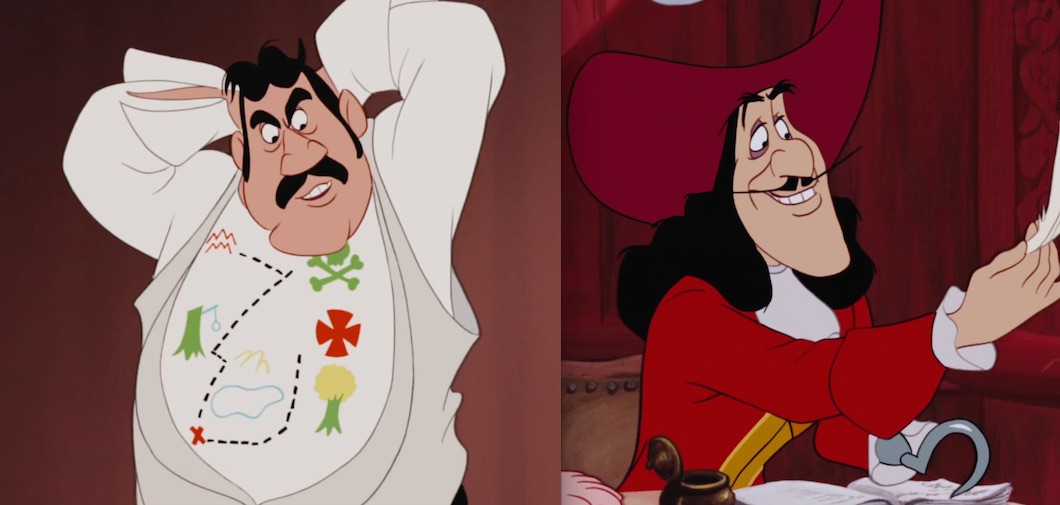Thursday
I’m learning a lot from my end-of-the-semester British Fantasy student presentations. I’ve written before about the violence in Peter and Wendy, and through one student’s engagement with the book, I now have an even better understanding of why there is so much slashing and killing.
Natalie Bellanton is an African American student who described the pressure on her to grow up and be a successful professional. While she wanted to read fantasy and watch anime, her mother insisted that she put away childish things and focus on STEM subjects. Only recently did Natalie finally decide to drop her chemistry major and focus on English, her real love.
Thus, she found herself identifying with the six-year-old Barrie when he found himself having to take care of his mother after his 14-year-old brother died. Barrie’s mother wanted him both to be his brother and see to her needs. We can see in that family drama the reasons for Barrie’s love/hate relationship with mothers.
In the novel, Natalie said, Barrie expresses his resentment at growing up through both Mr. Darling and Captain Hook. Mr. Darling is never comfortable at having to make adult decisions, such as budgeting for children:
For a week or two after Wendy came it was doubtful whether they would be able to keep her, as she was another mouth to feed. Mr. Darling was frightfully proud of her, but he was very honorable, and he sat on the edge of Mrs. Darling’s bed, holding her hand and calculating expenses, while she looked at him imploringly. She wanted to risk it, come what might, but that was not his way; his way was with a pencil and a piece of paper, and if she confused him with suggestions he had to begin at the beginning again.
‘Now don’t interrupt,’ he would beg of her. ‘I have one pound seventeen here, and two and six at the office; I can cut off my coffee at the office, say ten shillings, making two nine and six, with your eighteen and three makes three nine seven, with five naught naught in my cheque-book makes eight nine seven,—who is that moving?—eight nine seven, dot and carry seven—don’t speak, my own—and the pound you lent to that man who came to the door—quiet, child—dot and carry child—there, you’ve done it!—did I say nine nine seven? yes, I said nine nine seven; the question is, can we try it for a year on nine nine seven?’
‘Of course we can, George,’ she cried. But she was prejudiced in Wendy’s favour, and he was really the grander character of the two.
Barrie’s version of what it means to be an adult may seem comic but one can sense the resentment that underlies it. This particularly becomes clear in the scene where he resists taking his medicine. He is all too ready to regress to childhood.
For Hook, being an adult means ascribing to social expectation of “good form.” His fear of not living up to those expectations haunts his dreams and leads to his angry hook slashing:
But above all he retained the passion for good form.
Good form! However much he may have degenerated, he still knew that this is all that really matters.
From far within him he heard a creaking as of rusty portals, and through them came a stern tap-tap-tap, like hammering in the night when one cannot sleep. ‘Have you been good form to-day?’ was their eternal question.
And further on, right before he is eaten by the crocodile:
What sort of form was Hook himself showing? Misguided man though he was, we may be glad, without sympathizing with him, that in the end he was true to the traditions of his race. The other boys were flying around him now, flouting, scornful; and as he staggered about the deck striking up at them impotently, his mind was no longer with them; it was slouching in the playing fields of long ago, or being sent up for good, or watching the wall-game from a famous wall. And his shoes were right, and his waistcoat was right, and his tie was right, and his socks were right.
Hook envies Peter, who is the wish fulfillment of not having to grow up. Peter, because he doesn’t worry about social expectations, has instinctive good form.
The difference between Hook and Mr. Darling (who were played by the same actor in the theatrical version) is that Hook is never able to get in touch with his inner child whereas Mr. Darling, in the end, finds a way to do so. Notice the difference between his early pragmatism about children and the carefree way that he adopts the lost boys:
[He] said he would find space for them all in the drawing-room if they fitted in.
‘We’ll fit in, sir,’ they assured him.
‘Then follow the leader,’ he cried gaily. ‘Mind you, I am not sure that we have a drawing-room, but we pretend we have, and it’s all the same. Hoop la!’
He went off dancing through the house, and they all cried ‘Hoop la!’ and danced after him, searching for the drawing-room; and I forget whether they found it, but at any rate they found corners, and they all fitted in.
Barrie too found a way, as an adult, to reconnect with his childhood through his friendship with the Llewelyn Davies boys, the youngest of whom became the inspiration for Peter.
Fantasy, Natalie concluded, provides us a healthy refuge from the pressures of the adult world. Through it we can vent our frustrations at having to grow up.


